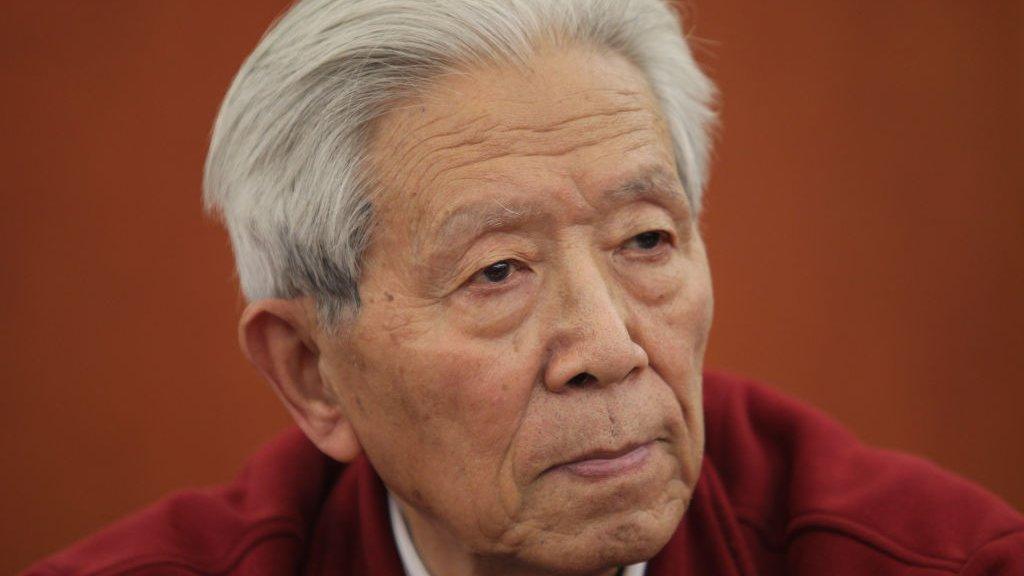Jiang Yanyong: Whistleblower doctor who exposed China's Sars cover-up dies
- Published

Jiang Yanyong blew the whistle about Sars early on in the 2003 crisis
Jiang Yanyong, a former military surgeon who blew the whistle on Chinese authorities' cover-up of the 2003 Sars epidemic, has died aged 91.
He died of pneumonia on Saturday in Beijing, family friends and Chinese-language media in Hong Kong reported.
Dr Jiang was praised for saving lives after writing a letter in the early stage of the Sars crisis which revealed officials were playing down the threat.
But he endured house arrest at one point for his unwavering outspokenness.
Sars infected more than 8,000 people worldwide in 2003. Of these, 774 died, according to World Health Organization (WHO) figures.
Dr Jiang had been working in a Beijing hospital in April 2003, when he was alarmed to hear the Chinese health minister telling the public there were only a handful of cases of a new deadly respiratory disease.
The senior doctor said he knew more than 100 people had Sars - severe acute respiratory syndrome - in military hospital wards alone.
He sent a letter exposing the lies in the official narrative to Chinese state broadcasters, who ignored it. But the letter was then leaked to foreign media which published his account in full.
His revelations forced the Chinese government to admit it had provided false information, and spurred the WHO into action.
Strict containment measures were imposed overnight, which helped slow the spread of the virus.
His actions also led to the sacking of China's health minister and Beijing's mayor at the time.
"I felt I had to reveal what was happening, not just to save China, but to save the world," he said about his actions.
The following year, Dr Jiang again challenged Beijing. He called on Chinese Communist Party (CCP) to acknowledge its 1989 crackdown on Tiananmen Square protesters had been wrong - and that hundreds, possibly thousands, of civilians had been killed.
He wrote of his experience working as a surgeon in Beijing on that night. In a letter, he recounted, external how authorities "acted in frenzied fashion, using tanks, machine guns and other weapons to suppress the totally unarmed students and citizens".
Ordinary Chinese would be "increasingly disappointed and angry" with the CCP's view of the protests as a counter-revolutionary riot, he said. "Our party must address the mistake it has made," he wrote.
He and his wife, Hua Zhongwei, were later detained, but Dr Jiang remained for years undeterred on the topic. He wrote a letter to Chinese President Xi Jinping in 2019, denouncing the Tiananmen Square crackdown as a "crime".
Dr Jiang was born in 1931 in the eastern city of Hangzhou to a wealthy banking family and went into medicine after seeing his aunt die of tuberculosis. He is survived by his wife, a son and a daughter, according to South China Morning Post.
Over his lifetime he received several civil honours recognising his public stands, including the Ramon Magsaysay Award for Public Service in 2004.
"He broke China's habit of silence and forced the truth of Sars into the open," the award citation read.
Dr Jiang's experience has drawn comparisons with China's initial approach to the Covid-19 outbreak.
Li Wenliang, an eye doctor in Wuhan, was investigated by police for "spreading rumours" after trying to warn people of a "Sars-like virus" in December 2019.
After falling sick from Covid himself, Dr Li said on Chinese social media that he wondered why authorities were saying no medical staff had been infected. Dr Li died of the virus in February 2020.